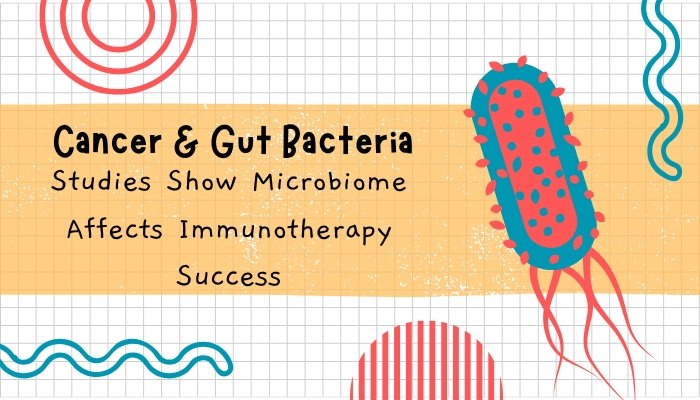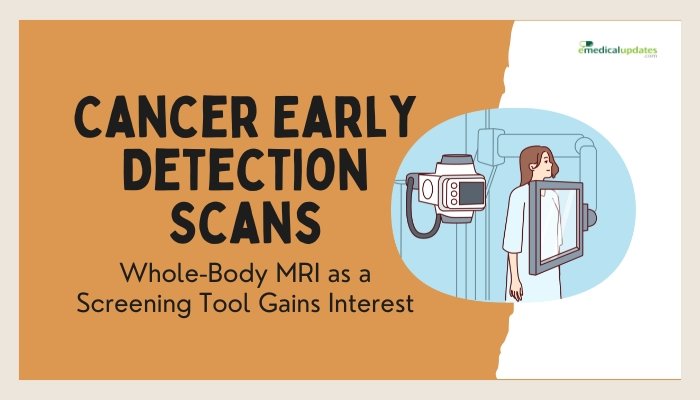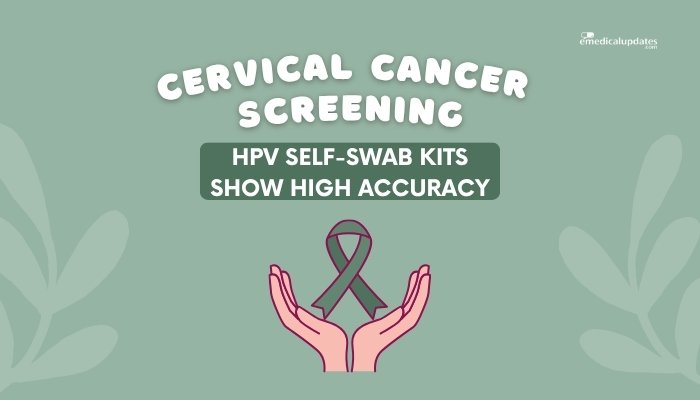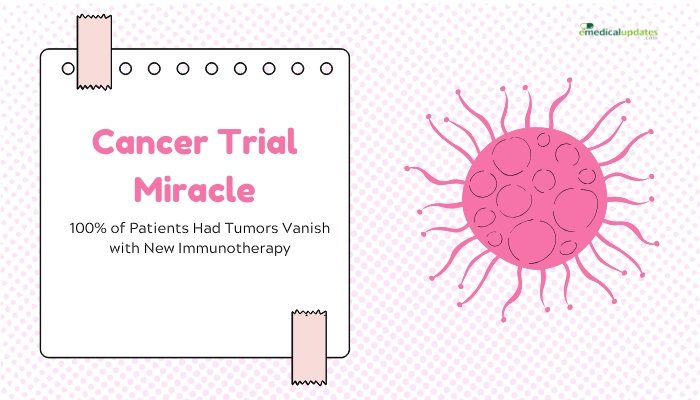Introduction
The effectiveness of immunotherapy—particularly checkpoint inhibitors—varies among cancer patients. While genetic mutations, tumor markers, and general health are known factors, a new actor has emerged in recent years: the gut microbiome.

Studies indicate that specific bacterial communities in the gastrointestinal tract can influence how well patients respond to immunotherapy, shaping the intensity of immune responses or modulating inflammation.
This article examines the science linking gut bacteria to immunotherapy success, summarizes key findings, and explores what it might mean for future cancer care.
The Gut Microbiome and Cancer Immunity
The Gut-Immune Axis
Within our intestines, trillions of microbes—bacteria, viruses, fungi—coexist, collectively known as the microbiome. They:
- Educate the Immune System: Helping immune cells discern friend from foe.
- Produce Metabolites: E.g., short-chain fatty acids that can modulate inflammation or T-cell function.
- Maintain Mucosal Barriers: Contribute to the health of intestinal lining, preventing harmful translocation and systemic immune overactivation.
Relevance to Cancer
Mounting data shows that the microbiome can influence outcomes in:
- Colorectal Cancer: Where bacterial dysbiosis fosters tumor growth.
- Extraintestinal Cancers: Through immune crosstalk and systemic signals.
- Therapeutic Response: Certain microbes might prime or hamper immune activation needed for effective cancer immunotherapy.
How the Microbiome Shapes Immunotherapy
Checkpoint Inhibitors
Drugs like PD-1/PD-L1 or CTLA-4 blockers unleash T-cells to kill tumor cells. But some patients see little benefit. Research suggests:
- Favorable Microbes: Bacterial taxa such as Akkermansia muciniphila, Bifidobacterium longum, or Faecalibacterium prausnitzii correlate with better response.
- Unhelpful Microbes: Certain opportunistic bacteria or antibiotic-exacerbated dysbiosis can impair T-cell activation, leading to lower immunotherapy success.
Mechanisms
- Enhanced Antigen Presentation: Certain gut microbes might boost dendritic cell or T-cell activity.
- Reduced Chronic Inflammation: Balanced flora may quell harmful low-grade inflammation that diverts immune resources.
- Nutrient and Hormone Production: Some microbial metabolites can prime T-cells or reduce regulatory signals that hamper immune attacks on tumors.
Clinical Evidence
Animal Models
In mouse studies:
- Germ-Free Mice: Show poorer response to checkpoint inhibitors than those with intact or transplanted beneficial microbiota.
- Fecal Microbiota Transplants: Transfer of stool from immunotherapy-responsive patients to non-responders can confer improved outcomes, underscoring the microbiome’s role.
Human Studies
Some clinical trials or observational research indicate:
- Antibiotic Impact: Patients who took broad-spectrum antibiotics around immunotherapy initiation often have worse results, presumably from wiping out beneficial gut bacteria.
- Fecal Transplants in Trials: Early-phase tests have found that giving non-responders fecal microbiota from responders can shift their microbiome, sometimes enhancing therapy success.
Improving Outcomes via Microbiome Modulation
Probiotics and Dietary Measures
While some advocate taking probiotics or adopting high-fiber diets to cultivate beneficial bacteria, formal guidelines remain unestablished due to limited robust data on exact strains or timing.
Fecal Microbiota Transplant (FMT)
Inspired by success in treating resistant C. difficile infections, FMT is now explored for cancer immunotherapy:
- Goal: Rebuild a “responder-like” microbiome in a non-responder.
- Challenges: Standardizing donor selection, ensuring safety, and sustaining the transplanted flora under immunosuppression.
Personalized Approaches
Future research might tailor interventions based on each patient’s baseline microbiome, identifying which species to augment or remove. This precision approach could amplify immunotherapy’s potency while minimizing undesired immune complications.
Challenges and Ongoing Debates
- Causation vs. Correlation: Observational links between certain bacteria and outcomes do not guarantee direct causal relationships.
- Quality and Consistency: Microbiome composition can vary significantly by geography, diet, and genetics, complicating standard protocols.
- Long-Term Data: We need more prospective, randomized studies to confirm that shifting gut bacteria truly improves survival or response rates.
Future Outlook
Large-Scale Trials
Multi-center Phase II/III trials combining immunotherapy with microbiome interventions (FMT, probiotics, specialized diets) will clarify best practices.
Microbiome-Based Drug Development
Companies exploring “live biotherapeutic products” (specific microbial strains) or microbial-derived molecules for synergy with immunotherapy could yield new commercial therapies or boosters for immuno-oncology.
Integrative Cancer Care
Eventually, oncologists may integrate routine gut microbiome assessments into immunotherapy decisions, adjusting antibiotic usage, diet, or prescribing targeted microbial additives to maximize patient response.
Frequently Asked Questions
- Should I take probiotics while on immunotherapy?
- Clinical evidence is still evolving. Some caution that random probiotics might hamper or help depending on strains. Always consult your healthcare team.
- Will antibiotics ruin my immunotherapy?
- Occasional antibiotic use for legitimate infections is necessary. However, prophylactic or broad-spectrum antibiotic overuse near therapy start can worsen outcomes. Coordination with oncologists is key.
- Is FMT widely available for cancer patients?
- It’s primarily experimental in the oncology setting, though some limited trials exist. It’s more established for GI conditions like recurrent C. diff.
- Can diet alone fix my microbiome for better immunotherapy response?
- A healthy, fiber-rich diet can nurture beneficial bacteria but may not be a standalone solution. It’s likely supportive alongside standard care.
- How soon could microbiome-based therapy be standard for cancer?
- Possibly within a few years if results from ongoing and upcoming trials prove consistent benefits and safe protocols.
Conclusion
Mounting evidence underscores that our gut microbiome can critically influence the success of cancer immunotherapy, shaping how T-cells and other immune components respond to malignant cells. While harnessing this relationship clinically is still in its infancy, early trials of fecal microbiota transplants, targeted probiotics, or diet adjustments show promise in boosting immunotherapy efficacy. However, major questions remain around optimal approaches, safety considerations, and how best to personalize interventions for each patient’s unique microbial community.
As larger trials progress and advanced analyses pinpoint the key bacterial players, the concept of fine-tuning the microbiome for improved cancer outcomes will likely grow in prominence. Ultimately, an integrated regimen combining immunotherapy with microbiome modulation could become a mainstay in next-generation oncology care, turning the tide for many battling hard-to-treat malignancies.
References
-
Routy B, et al. (2018). “Gut microbiome influences efficacy of PD-1–based immunotherapy.” Science.
-
Gopalakrishnan V, et al. (2018). “Gut microbiome modulates response to anti–PD-1 immunotherapy in melanoma patients.” Science.
-
Matson V, et al. (2021). “Microbiome and checkpoint inhibitors synergy in cancer therapy.” Nat Rev Microbiol.
-
Baruch EN, et al. (2021). “Fecal microbiota transplant for immunotherapy-resistant melanoma.” Lancet Oncol.






